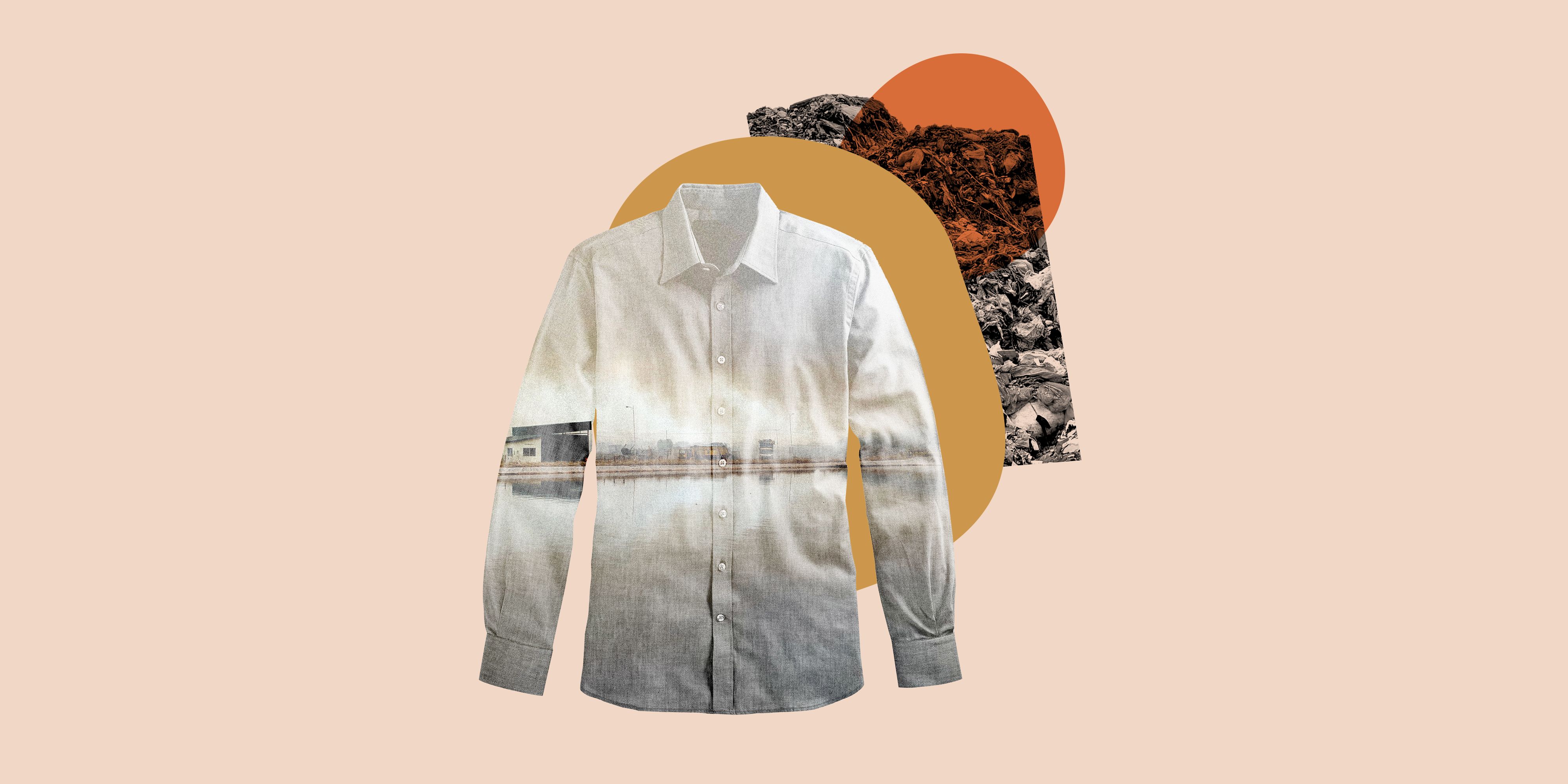Stay Ahead of the Contour by Checking Out Ingenious Fashion Fads
In a sector as dynamic as style, remaining ahead involves even more than just complying with current fads-- it requires an exploration of technology. Smart fabrics, as an example, are changing garments right into useful work of arts, while 3D printing is reinventing style procedures with its personalized, waste-reducing capacities. As sustainability ends up being a cornerstone, developments like environmentally friendly materials and circular style techniques are improving ecological duty - Cape Town Sustainable Fashion. In addition, the merging of technology and fashion advertises a new era of consumer involvement. How, then, can these arising fads redefine the future of fashion, and what ramifications do they hold for brands looking for to thrive in this progressing landscape?

Accepting Smart Textiles
In recent years, the garment industry has actually seen a transformative change with the combination of clever textiles, an innovative innovation that mixes modern technology with material. This advancement represents not only a blend of aesthetics and functionality however additionally a significant jump towards sustainability and personalization in vogue. Smart textiles, likewise recognized as e-textiles, installed advanced electronics such as sensing units and conductive threads within the fabric, making it possible for garments to connect with the atmosphere or the wearer.
These fabrics are developed to monitor physiological parameters, such as heart price or body temperature, giving real-time wellness analytics. Past health and wellness applications, clever fabrics are additionally being utilized for flexible clothing, which can transform color or pattern in action to environmental stimuli, hence supplying a vibrant style experience.
Moreover, the advancement of energy-harvesting textiles that generate power from activity or sunshine is paving the way for self-dependent wearable innovation. This development is attracting environmentally mindful consumers and developers intending to lower the eco-friendly footprint of fashion. As study and development in this area development, clever textiles are expected to become progressively prevalent, improving the landscape of modern style with their multifunctional capacities.
The Increase of 3D Printing
Reinventing the manufacturing landscape, 3D printing has actually become a game-changer in the fashion business. This innovative innovation has enabled designers to press the limits of creative thinking, producing detailed and personalized garments that were formerly unimaginable. By leveraging electronic layout and additive manufacturing, 3D printing facilitates the creation of complex geometries and patterns, permitting designers to try out brand-new structures and frameworks.
A notable advantage of 3D printing in vogue is its ability to create on-demand, decreasing waste and minimizing stock needs. This performance not just maximizes manufacturing processes yet additionally permits for rapid prototyping, enabling designers to bring their visions to life in a shorter duration. Additionally, 3D printing sustains personalization to a level unparalleled by conventional approaches, using one-of-a-kind designs and tailored fits tailored to private consumer choices.
The surge of 3D printing has likewise equalized style, making it easily accessible to arising designers who can now make top quality pieces without significant economic investment in typical manufacturing facilities. As innovation proceeds to advancement, the fashion business is positioned to harness the full capacity of 3D printing, discovering brand-new products and strategies that will certainly redefine exactly how fashion is conceived and produced.
Sustainable Fashion Advancements
As the fashion sector comes to grips with the pressing demand for ecological responsibility, sustainable fashion advancements have actually arised at the forefront of transformative modification. The growing understanding of ecological impact has actually fueled a change in the direction of even more eco-conscious methods and products. Brand names and designers are now focusing on sustainability, integrating techniques that lessen waste and reduce carbon footprints.
One significant advancement is the rise of round style, which highlights recycling and upcycling to expand the lifecycle of garments. This technique not just lowers waste but also urges consumers to take on a much more mindful strategy to apparel intake. Additionally, using lasting products, such as organic cotton, hemp, and recycled polyester, has gotten traction. These products need much less water and energy during production, considerably minimizing ecological impact.
Another development hinges on the fostering of ingenious dyeing methods that utilize all-natural dyes or waterless procedures, thereby reducing the substantial amounts of water and chemicals traditionally used in textile dyeing. Furthermore, developments in biotechnology have actually led to the development of lab-grown natural leather and textiles, providing cruelty-free and environmentally friendly alternatives to standard products. Via these pioneering initiatives, the apparel industry is making meaningful strides towards an extra lasting future.

Tech-Integrated Apparel
Tech-integrated clothing stands for an innovative blend of fashion and innovation, reshaping exactly how people communicate with their clothing. This innovative domain name is noted by the inclusion of smart fabrics and embedded digital elements, enhancing both performance and visual allure. From fitness trackers embedded in sports apparel to investigate this site warmed jackets regulated by means of smart device apps, tech-integrated apparel provides customers extraordinary comfort and adaptability.
Pioneering brands are driving this trend, concentrating on producing garments that react to ecological stimulations or individual commands. For circumstances, some garments can transform shade or pattern in feedback to temperature level changes, while others incorporate biometric sensors to monitor health metrics like heart rate or tension levels. The seamless assimilation of modern technology right into textiles additionally encompasses ecological sustainability, with initiatives to develop self-cleaning fabrics or garments that readjust to weather problems, hence minimizing the need for numerous layers.
Furthermore, the advent of wearable modern technology is not simply limited to clothing but encompasses accessories like watches and glasses, additional broadening the range of tech-integrated style. As the industry proceeds to introduce, the potential for customization and customization in clothing grows, providing customers distinct, tech-enhanced fashion experiences that provide to their individual needs and choices.
Future of Virtual Fashion
In the last few years, the future of online style has arised as a transformative force within the market, leveraging innovations in electronic innovation to redefine exactly how style is produced, experienced, and eaten. By integrating increased reality (AR), online truth (VIRTUAL REALITY), and 3D style devices, designers can now craft immersive and interactive experiences that go beyond traditional fashion boundaries. Virtual style allows for the production of garments that exist only in electronic environments, using endless possibilities for development without the constraints of physical production.
This digital shift not only offers opportunities for innovative expression but also addresses sustainability concerns fundamental in typical fashion methods. Cape Town Sustainable Fashion. By getting rid of the requirement for physical sources, virtual fashion reduces waste and reduces carbon impacts. In addition, the surge of online style straightens with the boosting customer demand for distinct and tailored experiences, as virtual garments can be customized and tailored to private choices with convenience

Final Thought
The fashion market's future lies in the assimilation of sustainable techniques and cutting-edge technologies. Online style is positioned to redefine customer interactions.
In recent years, the fashion market has actually observed a transformative shift with the assimilation of clever textiles, a sophisticated advancement that blends modern technology with textile.As the fashion sector grapples with the pressing requirement for environmental obligation, sustainable style technologies have actually arised at the center of transformative adjustment.In current years, the future of online fashion has emerged as a transformative force within the sector, leveraging innovations in digital modern technology to redefine how fashion is developed, experienced, and eaten. The surge of digital style straightens with the increasing consumer need for distinct and personalized experiences, as online garments can be customized and customized to specific choices with ease.
The fashion market's future lies in the combination of ingenious technologies and sustainable practices.